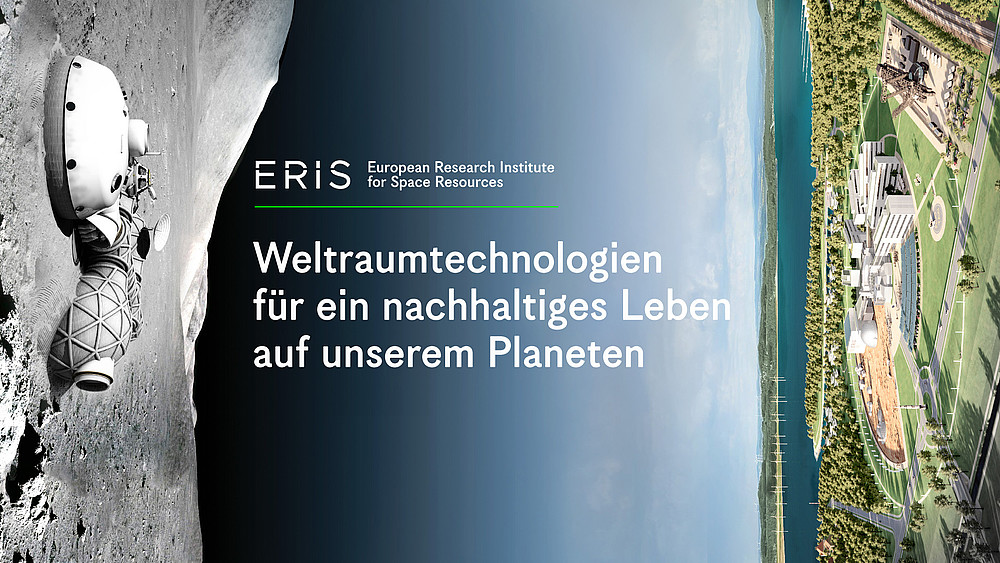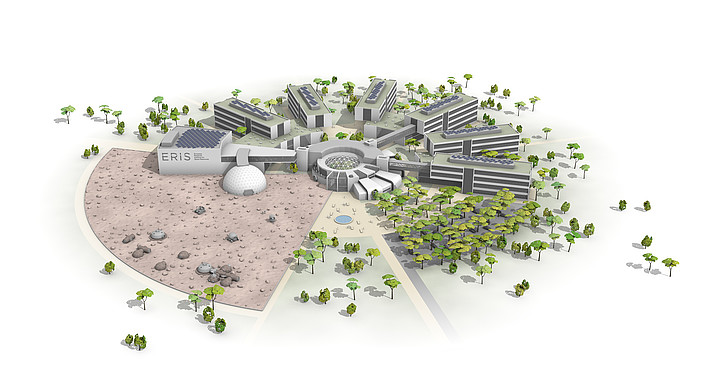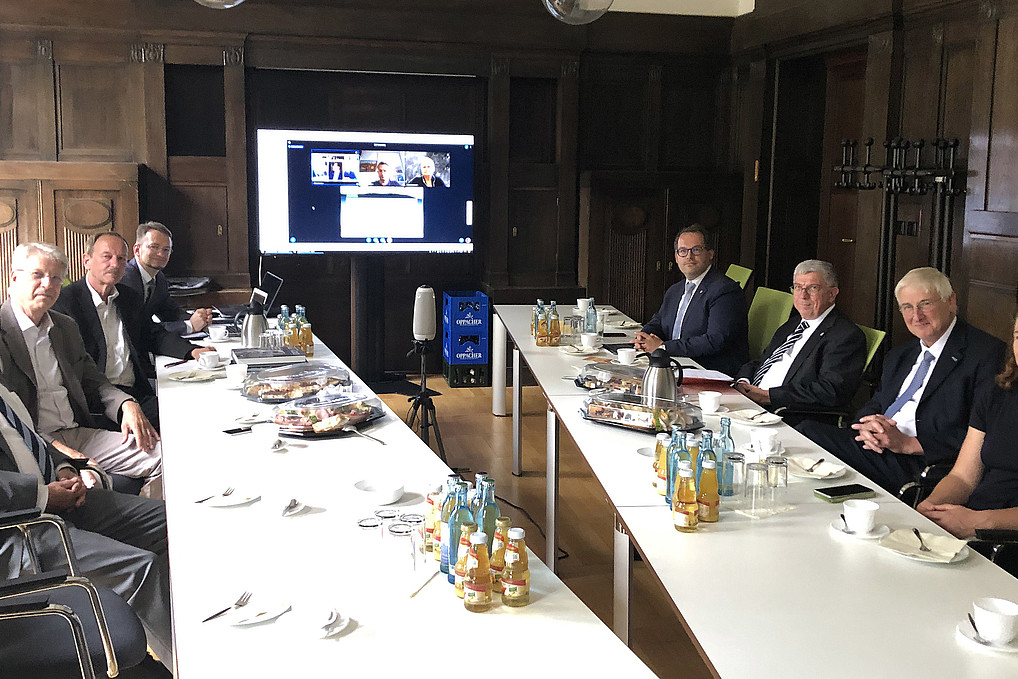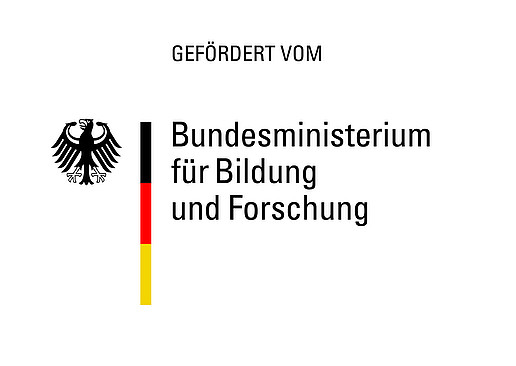The ERIS project was presented at the public discussion "Space research - opportunities for the coal region" in the presence of astronaut Thomas Reiter.

Simply reach for the stars. Because that's where the opportunities lie for Saxony's coal region. The project ERISproject, the Competence Center for Aerospace Technology Saxony/Thuringia and the German Aerospace Society invited guests to the HSZG in Görlitz on September 7.

The aim of the public discussion on the topic of "Space technologies - opportunities for the coal region", which took place as part of a two-day advisory board meeting, was to present the ERIS project to entrepreneurs and local authorities as well as the general public. The event was organized by the TU Bergakademie Freiberg and the Zittau/Görlitz University of Applied Sciences.
"ERIS is an initiative that is applying for the establishment of one of the two new large-scale research facilities to be created in the Saxon coal regions," explains Rector Alexander Kratzsch. "The aim of the project is to find innovative solutions for technologies for future life on other planets and resource conservation on Earth." Zittau/Görlitz University of Applied Sciences is a partner in this project alongside many regional institutions.
With a view to future space travel, the idea behind ERIS is to make supply modules independent of the Earth. In contrast to the ISS, for example, the first station on other planets is to be set up with only the bare essentials so that it can then be expanded piece by piece with 'all' locally available materials. This includes the production of food.

In addition to project content, Prof. Kratzsch also looks at statistics. It is noticeable that aerospace-related degree courses are very popular in Germany. However, most courses are admission-restricted. "A project of this kind in Lusatia offers great opportunities for attracting young people to our home region, as well as attracting students to the Saxon universities and thus also to the Zittau/Görlitz University of Applied Sciences," he says with conviction.
In addition, the development potential of space technology is also enormous for life on earth. Centers involved in space research have a considerable influence on the economic development of their regional environment.
Presumably far into space, the rector adds with a grin. A conjecture that the former ESA astronaut Thomas Reiter is probably best placed to judge. The renowned astronaut also took part in the discussion, as did the planetary researcher and Director of the DLR/NASA Regional Planetary Image Facility in Berlin-Adlershof Prof. Dr. Ralf Jaumann, the German physicist and long-standing member of the DLR Executive Board Prof. Dr. Hansjörg Dittus and the honorary cosmonaut and expert in extra-planetary biology Dr. Thorid Zierold.
They reported on their research, their experiences in space and the preparation of space missions and explained the opportunities of space research for structural change in Lusatia. Afterwards, questions were asked and the advisory board members were available to sign autographs.
"ERIS is an extremely visionary project of great scope and with great potential to create new economic prospects and high-tech locations for regional industry with numerous jobs. We now need the courage to turn a great vision into reality," summarized the Rector.
ERIS - the European Research Institute for Space resources - is one of six concepts recommended for the first funding phase for the establishment of two large-scale research centers in the ideas competition "Knowledge creates prospects for the region!" organized by the Federal Ministry of Education and Research.
If successful, more than 1.1 billion euros will be available for the establishment of the new large-scale research center ERIS by 2038. The best two concepts are expected to be selected in October 2022. Further information can be found on the ERIS website.
You can read about the HSZG's contribution to the project here: High technologies from space research.
